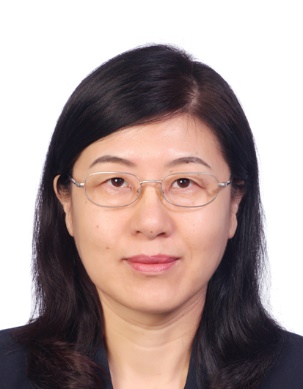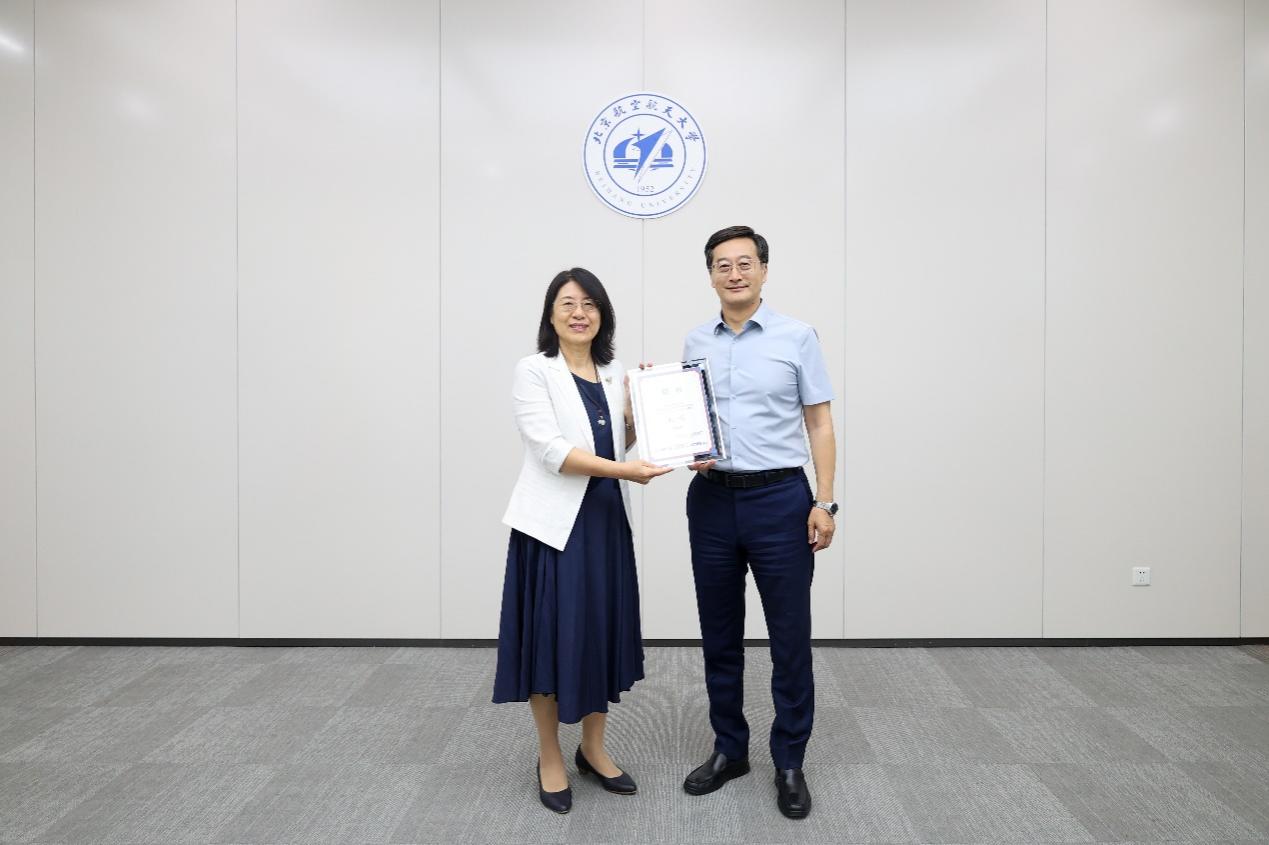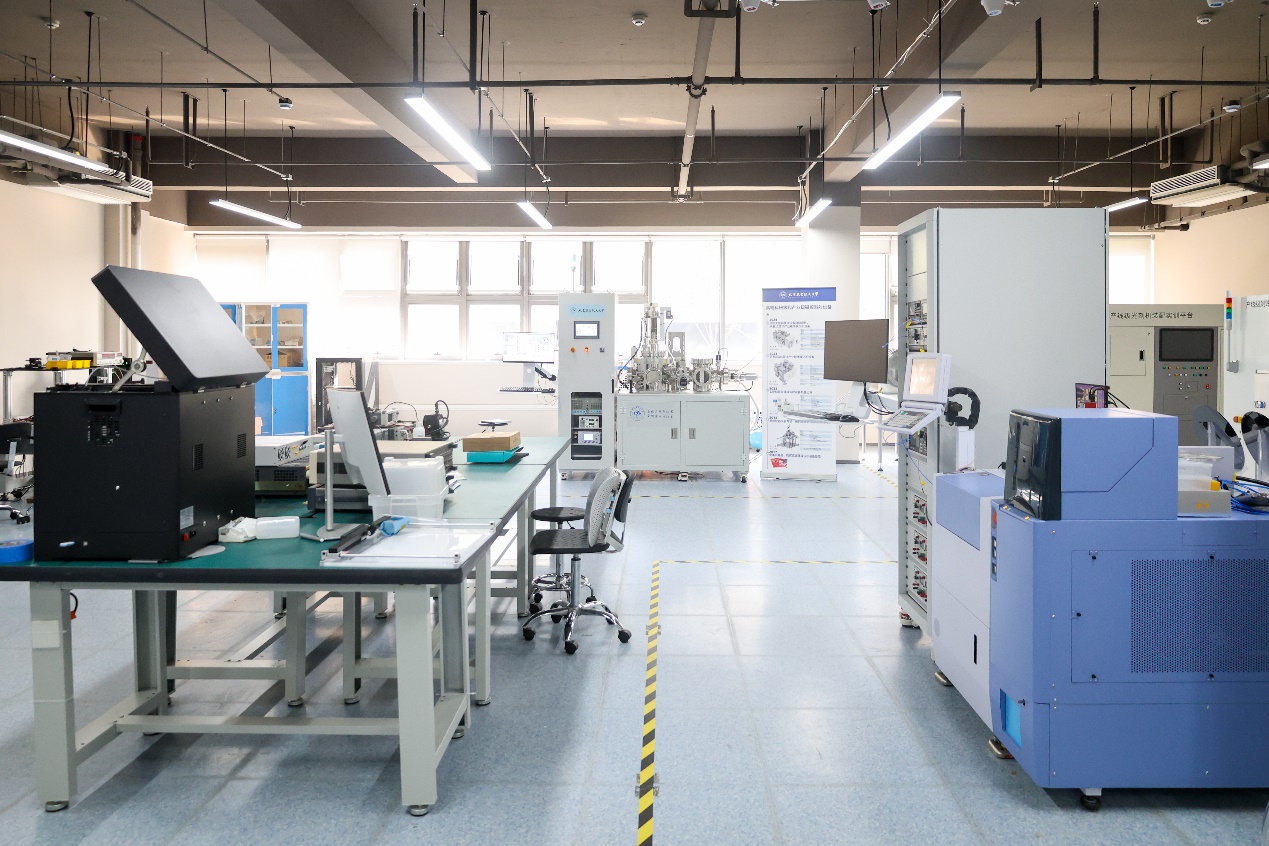(Correspondent/Li Xingzuo) With the arrival of the winter solstice, the promise of spring draws near. As winter arrives, Beihang Hangzhou International Campus celebrates great news: Renowned spintronics scholar and researcher Zhao Jianhua, has officially joined Beihang University full-time. She will serve as the chief scientist at the National Key Laboratory of Spintronics at H3I, focusing on cultivating much-needed talent in integrated circuits and critical technology research in spintronics chips.

Zhao Jianhua, PhD, senior researcher and doctoral supervisor, a valid candidate for the 2023 Academician Election of the Chinese Academy of Sciences, Recipient of the State Council’s Special Government Allowance.
Dr. Zhao completed her undergraduate and master’s studies at Jilin University and later gained a PhD in Science from the Institute of Physics of the Chinese Academy of Sciences (CAS) in 1999. She conducted postdoctoral research at the Institute of Semiconductors of CAS from 1999 to 2000, and at Tohoku University in Japan from 2000 to 2002.
From 1988 to 1996, she taught at the School of Materials Science and Engineering of Yanshan University. From 2002 to 2024, she served as a Research Fellow at the State Key Laboratory of Semiconductor Superlattices of the Institute of Semiconductors of CAS. From 2015 to September 2024, she was a Professor at the University of the CAS. In October 2024, she joined H3I as a Research Fellow and continued as a Guest Professor at the Institute of Semiconductors of CAS.

△ Beihang President Wang Yunpeng presents Zhao Jianhua with a letter of appointment
As the chief scientist of a major project funded by the Ministry of Science and Technology, Zhao Jianhua has led over ten key and major projects supported by the National Natural Science Foundation of China, the Ministry of Science and Technology, and CAS.
Currently, she serves as a committee member of the International Union of Pure and Applied Physics (IUPAP) on Magnetism and has been elected as the Vice-Chair of the next term (2025-2027). She also serves as a member of the Advisory Committee for Magnetism and Magnetic Materials (MMM Adcom), a member of the Physics Panel of the Hong Kong Research Grants Council (RGC), a member of the Magnetism Commission of the Chinese Physical Society, and a member of the Women in Physics Committee of the Chinese Physical Society. Additionally, she is an editorial board member for journals such as Science China, National Science Review, Physics, and Advances in Physics.
Zhao Jianhua has long been engaged in research on semiconductor spintronics and low-dimensional semiconductor physics, leading her team to achieve systematic and innovative results. To date, she has published over 300 articles in major academic journals, including Nature sub-journals, Phys. Rev. Lett., Nano Lett., and Adv. Mater., and has delivered more than 130 invited talks at domestic and international conferences.
She has received honors such as the Asian Union of Magnetics Societies (AUMS) Award, the Huang Kun Physics Prize of the Chinese Physical Society, the Outstanding Graduate Advisor Award of the Chinese Academy of Sciences, and the Second Prize of the National Technological Invention Award of China. She has supervised over 30 PhD students, with around 20 of them winning awards such as the National Scholarship, the Chinese Academy of Sciences (CAS) President’s Award for Excellence, the CAS Outstanding Doctoral Dissertation Award, the Beijing Outstanding Graduate Award, and the CAS Institute of Semiconductors Director’s Scholarship.
Representative achievements:
(1) Developed methods to increase the Curie temperature of magnetic semiconductors, setting and maintaining an international record with a Curie temperature of 200K for the magnetic semiconductor (Ga, Mn)As.
(2) Observed the complete transport characteristics of orbital two-channel Kondo (2CK) effect non-Fermi liquid behavior, providing the first experimental confirmation of theoretical predictions for orbital 2CK effect and resolving a 36-year debate in quantum multibody physics.
(3) Fabricated Mn-based binary alloy single-crystal thin films with ultra-high perpendicular magnetic anisotropy, compatible with semiconductor structures and sub-10 nm node processes, providing critical materials for ultra-high-density spin memory and magnetic sensors.
(4) Solved growth dynamics dilemma for high-quality narrow-bandgap semiconductor InAs and InSb low-dimensional quantum structures and their heterostructures with superconductors, offering a series of quality materials for room-temperature optoelectronics, spin qubits, and topological qubits.
After joining full-time, Zhao Jianhua will be responsible for planning the development direction of the National Key Laboratory of Spintronics, enhancing talent quality and effectiveness while advancing high-level collaborative research domestically and internationally. She will also lead the formation of a semiconductor spintronics research team to conduct research on spintronic devices based on new principles, materials, and structures, and on semiconductor-based biomagnetic detection of weak magnetic fields, to advance the commercialization of scientific and technological achievements, and to establish a nationally leading and internationally influential spintronics laboratory.

H3I remains committed to being highly standardized, newly mechanized, and deeply internationalized. It will actively implement Beihang’s “Strengthening the University with Talent” strategy, maintain a global perspective, attract outstanding talents from all over the world, and build a reservoir of top global talent. H3I emphasizes the key role of leading talents, providing stronger support for Beihang's goal of building a world-class university with Chinese characteristics.
(Approved by: Hong Guanxin, Zhang Wei, Xu Ran)
Edited by: Yuan Xiaohui

